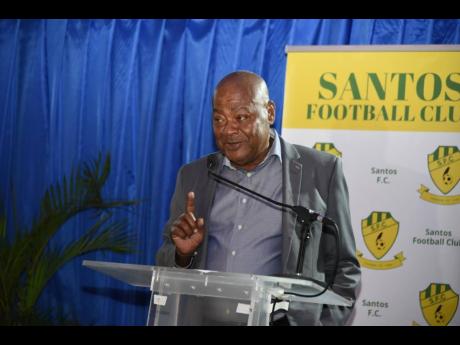Jamaica set to embark on FIFA talent development scheme
JAMAICA FOOTBALL Federation president, Michael Ricketts, revealed Jamaica was one of 25 countries set to take part in FIFA’s Talent Development Scheme (TDS) programme.
TDS is an international programme aimed at providing assistance to its various member associations in football development with the aim of closing the gap in skill and increasing global competitiveness.
“This is a programme that is supported by FIFA. There is a coach here that we have contracted to work with us for the next two years. He will be paid by FIFA and Jamaica was one of those 25 countries to be selected by FIFA to be part of this TDS programme,” explained Ricketts during a press conference at the JFF office on Thursday.
Reggae Boyz assistant coach John Wall will head the TDS programme in Jamaica that will target youth players from 12 to 16 years old.
Ricketts explained that the JFF will also begin identifying talent from six to 12 years old with the intention of funnelling them into the TDS programme.
To help with this, the JFF has partnered with the Ministry of Culture, Gender, Entertainment and Sport to ensure youth coaches are certified with coaching licences within a two-year period.
“We believe that having now had this kind of support from FIFA, the JFF now must prepare those players from ages 6 to 12. First of all, we think coaching at that level must be addressed. The minister of sport, Honourable ‘Babsy’ Grange, did announce that the Government will be partnering with the JFF in this regard.
“We will be rolling out a programme over two years that all primary school coaches must have at least a D licence. So the two-year programme will be D licence in the first year and C licence in the second year,” said Ricketts
Wall explained that the TDS programme will create more contact with the players as they seek to host training sessions four days per week.
For Wall, this will allow players to master the game’s fundamentals as they transition into senior football and increase Jamaica’s global competitiveness.
“This is not a quick fix. It will take time. The training, as it stands, is four times a week, Monday through Thursday,” he said.
“Overall, we need to increase our competitiveness and the contact time that we have with these players. We need to ensure that the best are competing and training with the best.”

